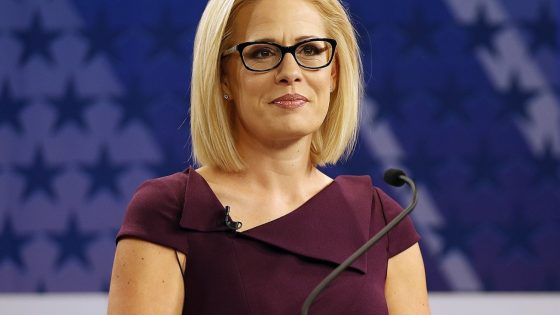By: Trevor Loudon
New Zeal
I have long contended that the Washington D.C. based Institute for Policy Studies is a key component of the movement that put President Barack Obama into the White House.
The I.P.S. provides key policy ideas for the Obama administration, but it also coordinates many key elements of the U.S. left behind the Obama movement.

Katrina vanden Heuvel is an I.P.S. trustee and editor of the leftist journal The Nation.
She is the co-editor of Taking Back America – And Taking Down The Radical Right (2004) and most recently of Meltdown: How Greed and Corruption Shattered Our Financial System and How We Can Recover.
She is a also a frequent contributor to MSNBC, CNN and ABC’s This Week.
Katrina vanden Heuvel serves on the board of the far left Institute for America’s Future and she also serves on the board of the Institute for Women’s Policy Research and the World Policy Institute.
She is also a member of the highly influential Council on Foreign Relations and is also connected to George Soros‘ far left leaning Open Society institute.
In her younger days Katrina vanden Heuvel was co-editor (with Stephen F. Cohen) of Voices of Glasnost: Interviews with Gorbachev’s Reformers (Norton, 1989) and also co-edited Vyi i Myi, a Russian-language feminist newsletter.
Given her positions of responsibility on the the U.S. left, it is only natural that vanden Heuvel should attempt to address the biggest problem currently facing U.S. communists, socialists and progressives. That is:
How to maintain the leftist unity that brought Barack Obama to power and use its influence and muscle to maintain enough support to enable the president to implement his full radical agenda?
The U.S. left has been fracturing in recent months as many of its more radical elements are dissatisfied with what they regard as a slow pace of change under Obama.
On August 15, 2010, vanden Heuvel wrote an article for the Washingtonpost.com entitled, “The ‘Principled Left’ Obama Needs.”
When Barack Obama embarked on what most political insiders saw as an audacious campaign for the presidency, the question was whether a newly-elected senator from Illinois could entice Democrats to consider a contender other than a former first lady who proposed to be the first woman president and a former nominee for vice president who was saying important things about the growing economic divide in America. What ultimately won him the Democratic nomination in 2008 was a decision by the principled left — professional and amateur — that the one leading candidate who had expressed blunt opposition to the war in Iraq before it began had shown better judgment than Hillary Clinton or John Edwards.
So it was that an exercise in political purism by the broad left put Obama on the path to the presidency. Now that Obama is president, however, his press secretary derides the “professional left” for being too pure in its demands on the White House. In point of fact, Robert Gibbs is wrong; at the most critical point in President Obama’s tenure so far — when Congress was deciding how to vote on a health-care bill that Republicans predicted would be his “Waterloo” — the most left-wing members of Congress and their allies (professional and amateur) across America rallied to support a measure that was deeply disappointing to many of them….
It is staggeringly simplistic for Gibbs to blame the “professional left” for the slew of troubles this White House currently confronts as much as seems to have. The left isn’t responsible for the administration’s insufficient response to the economic and social challenges the financial crisis has posed. The left isn’t responsible for a dysfunctional system that allows the minority party to obstruct with impunity — and special interests and big corporate money to dictate legislative policy. Nor is the left responsible for the fact that a majority of Americans no longer believe the Afghanistan war is worth fighting. (It is actually – New Zeal)
As historian Michael Kazin likes to say, “If the left were not somewhat unhappy with Barack Obama, it would not be much of a left.” Maybe Gibbs needs a history lesson on the relationship of the left to presidential administrations. Both FDR and LBJ, for example, had to respond to insurgencies on their left — labor and civil-rights movements — and in so doing were pushed to adopt bold progressive reforms.
Of course, these are different times, for America and its left. Ruth Marcus makes a credible point when she suggests that some on the left blame Obama for the failure to enact sweeping transformative reforms in less than two years. Blaming Obama is simplistic. After all, didn’t the left — old and new — typically use a power structure analysis to explain the limits of democracy in the U.S.? How is it, then, that it hoped Obama would override all that, and do so in less than two years?
The left I know and am a part of is not some monolithic entity. There are debates and divisions. I am of the school that believes the system is rigged against progressive change, and that great periods of change — the New Deal and the Great Society — took place after years of effort and many setbacks. I also believe that we on the left need to be as clear-eyed, tough and pragmatic about Obama as he and his team are about us. Playing what I call the betrayal sweepstakes — a ceaseless denunciation of the administration’s failures and missteps—doesn’t get us very far. It promotes disappointment, disempowerment and despair, which is just what our adversaries on the right seek.
As someone who would like to see Obama’s presidency succeed, I think he needs a left that engages in the same blending of principle and pragmatism that convinced progressive Democrats to choose him over Clinton and Edwards. The history of progressive change in our country leads me to believe that the left would be wise to avoid falling into either of two extremes — reflexively defensive or reflexively critical.
In the last 18 months, the left has learned the hard way that it needs to be more independent of the White House to realize the change we’re seeking. There’s now more energy being devoted to organizing, less to complaining. There is savvy organizing underway around specific issues — corporate power, filibuster reform, Medicare-for-all at the state level, stronger consumer protection — and the development of active, broad-based coalitions around those reforms that, as our history teaches us, is pretty much the only way things change in our system.
Katrina vanden Heuvel is telling the U.S. left – stop whining, get organized and unified. Push the Obama administration to make the changes you want.
Franklin Roosevelt’s “New Deal” and Johnson’s “Great Society” saw the two greatest leaps into socialism in U.S. history.
America now stands on the verge of a third and probably final push to socialism under Obama.
Katrina vanden Heuvel is telling her troops not to blow the greatest opportunity they will ever have to fly the Red Flag over America.


















